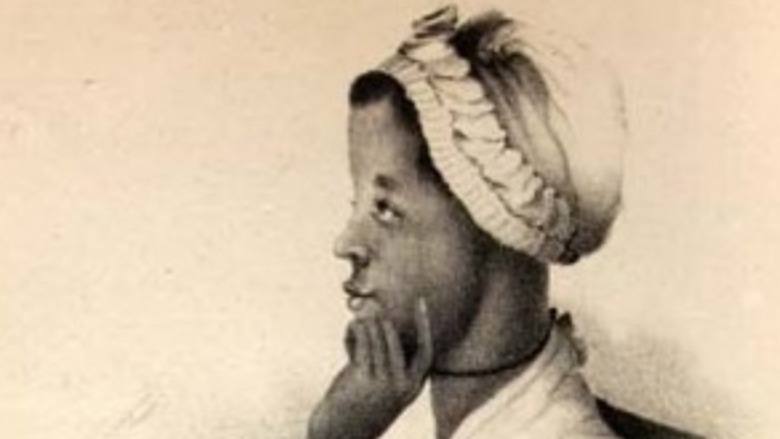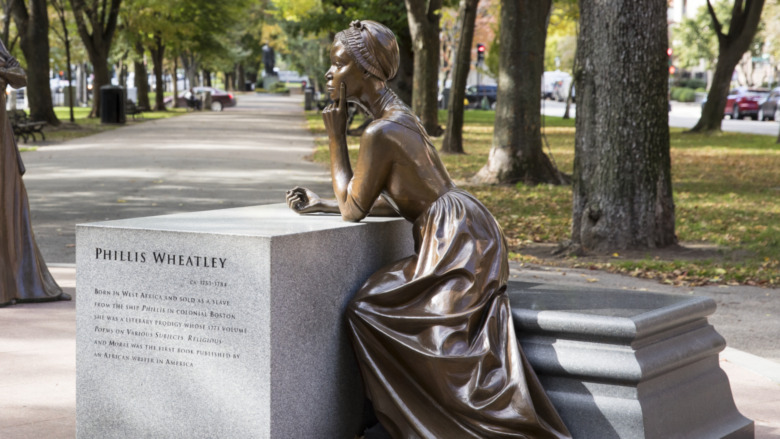The Tragically Short Life Of Phillis Wheatley
Phillis Wheatley was born in West Africa (in the area now known as Senegal and Gambia) around 1753, per Biography. At the age of 8, she was kidnapped and brought to Colonial Boston, Massachusetts where she was sold as a slave to John Wheatley. As was the custom for enslaved people at that time, she was given the last name of her captor. Wheatley intended for the young child to be a servant for his wife, Susannah. Susannah Wheatley and her children soon realized that Phillis was incredibly intelligent and educated her in theology, English, Latin, Greek, mythology, and ancient history and encouraged her to pursue her literary talents.
Phillis published her first poem in 1767 at the age of 13 in a newspaper, the Newport Mercury. Her first book of poetry, "Poems on Various Subjects, Religious and Moral," was published in England six years later. At that point, Selina Hastings, the Countess of Huntingdon, England was a patron of Wheatley's. She instructed publisher Archibald Bell to get in touch with Wheatley and prepare to publish her poems, according to the Poetry Foundation. In a preface to her book, 17 men reassured the reading public that Phillis had indeed written the poems within the volume. She became the first known African American, the first enslaved person, and the third known woman to publish a book within what would become the United States.
Phillis Wheatley was in favor of American independence from Great Britain and wrote several poems honoring Continental Army commander George Washington. One of the poems reached Washington and he invited Wheatley to visit him in Cambridge, which she eventually did in March of 1776.
Wheatley's second volume of poems was lost to history
Wheatley traveled to London, England in 1771 to promote her writing and receive medical treatment for her chronic asthma, according to the Poetry Foundation. There she was "welcomed by several dignitaries," including Benjamin Franklin.
Phillis was freed by the Wheatleys in 1774; Susannah died three months later, and John died in 1778. Per the Poetry Foundation, "the family had provided an ambiguous haven for the poet. Wheatley was kept in a servant's place — a respectable arm's length from the Wheatleys' genteel circles — but she had experienced neither slavery's treacherous demands nor the harsh economic exclusions pervasive in a free-black existence."
She married a free Black man, John Peters, and took his name. They had three children, all of whom died in their infancies. Beset by poverty, Phillis Wheatley Peters had to work as a maid in a boardinghouse. She continued to write and publish poems, and yet couldn't find a publisher for a second volume of poetry. She died on December 5, 1784 in her very early 30s while her husband was locked up in debtors' prison. She is thought to have written 145 poems that no longer exist, "probably abandoned during Peters' quest for subsistence after her death." "Poems on Various Subjects, Religious and Moral" was finally published in the United States two years after her death.

